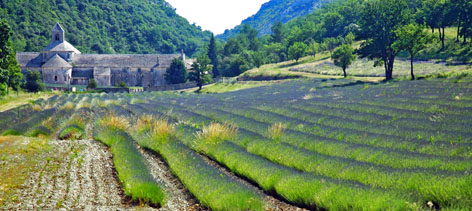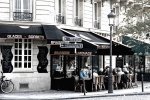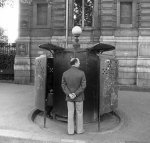French culture and customs
what makes the french, french?
French culture and customs are so fascinating. Not particularly to the French but certainly to anyone who travels there. There is something about France and the French culture that arouses interest all over the world. In the case of Brits, it's been love and war for over a thousand years, so we're old friends and enemies. But quite what it is that makes France above all other European countries so intriguing is difficult to say, the inevitable 'Je ne sais quoi', perhaps?
page menu

© ATOUT FRANCE/Nathalie
Baetens
French culture and customs
In the minds of many visitors (and non-visitors alike), France embraces the notions of romance, culture, intellectualism and liberty. Not surprisingly, it is easy to be seduced by France, by the soft, flowing lyricism of their language, the subtle nuances of philosophy, the wealth of French literature, art and music.
France is an amalgam of thoughts and ideas that are simultaneously familiar, yet foreign, a complex mélange of the 21st century and of tradition that somehow manages to achieve a sense of balance.
French culture and customs are fascinating, But what makes the French French? Glad you asked...

Young men from Anglet in traditional costumes performing the
Basque arch dance.
© ATOUT FRANCE/Aquashot
Why this should be so of this country in particular is difficult to define. But a visit to France instantly introduces you to a world which is, intentionally or otherwise, focused on sensory pleasure.
Whether in the aroma of a skilfully prepared meal, the melody of its music, the heady scent of the wild places, and just the sight of that lovely young woman across the street...okay, handsome young man, too.
Visit any of the major cities and you encounter beauty,
elegance, history and the finest collections of art and cultural artefacts.
Visit the wine cellars, and you feel yourself being admitted to a privileged
brotherhood, and swept back to a time when self-indulgence and bucolic rusticity
coexisted, if not always peaceably. Wander down cobbled backstreets that beckon
like an impatient child, and you instantly feel as though you are in a
different era, a world hallmarked by liberty and tradition.

© ATOUT FRANCE/François-Xavier Prévot
The French have always been a liberated and intellectual nation, with interests and tastes that come across as highbrow, elevated and culturally aware; pride in heritage and local history and identity is evident throughout the entire country from the largest cities to the smallest villages. As such, there is an appeal about the culture of France that inspires a desire for self-actualisation and a quest for knowledge.
France has the distinct advantage of being a country of great variety, satisfying a wide range of interests, pursuits and curiosities. Whether you want culinary delights, or fine wine, expansive landscapes, heritage and history, art or simply a golden sand beach, France can offer some of the best, which, naturellement, they would argue is the best. And therein lies the essence of France; the belief that they are the best. You don't have to agree with them, but you do have to admire them nonetheless.
French culture and customs is the finest and most intriguing in the world. But what makes France different to any other country in the world?
Let me explain.....

© ATOUT FRANCE/Nathalie Baetens
French culture and customs - some cultural differences
Culture is what identifies one nation from another, surely?
I was once asked why as a travel writer I specialised in just one country. I replied that firstly it was because I loved the country, secondly that it was because if I spent all my time travelling to different countries, all I would understand in any depth was how to travel.
Finally, I said, by specialising, I was able to get into the heart and soul of the country, to get to know it in depth, not superficially, as any fleeting visit only allows. Sure, in two intense days, you can learn a lot about the Louvre in Paris, but that doesn't tell you much about Paris, or the rest of France.
the French language
As it should be with any nation, the French are proud of their language; it is soft and flowing, even if, in some parts of France, it seems to flow over very rough pebbles lodged in the back of the larynx.
Don’t believe anyone who tells you that English is widely spoken in France. Why should it be? I can't recall any time when, back in England, a visitor has come up to me and spoke in French, expecting me to understand and reply in French, or German or Dutch. So, why should we expect French people to understand and speak in English.
Of course, while the command of a number of languages is evident in the major cities, especially among those in the tourist service industry, it is most definitely not the case in small villages and rural areas; find yourself having lunch in some rural auberge and it's likely to be French all the way.
In all major tourists spots, however, you will find that English is spoken by someone, and, to be fair to the excellent French educational system, French children start learning foreign languages, particularly English, from an early age.
So what do you do if you don’t speak the language?
Well, the daftest advice I ever saw was 'Stay in the major tourist areas'; if all you're going to do is hang around the centre of the cities, why bother going to the country in the first place?
Be adventurous, go beyond the tourist resorts, take a phrase book and try. Even if you sound awful, the French people will appreciate the effort and invariably help you out.
But the most important thing in all of this is to start with 'Bonjour, Madame/Monsieur'. It's polite to greet someone you are about to ask for help or a service...and that includes the taxi driver, the market trader...anyone.
And here's a 'Top Tip': when ordering in a restaurant, however badly you pronounce things, listen, immediately...more often than not the waiter will repeat your order, correctly pronounced...learn from that.
French culture and customs
visiting a café
French café culture is world-renowned, and for good reason: sitting
and sipping in a French café is among the finest pleasures of this
wonderful country. Paris, Nice or the smallest village - if you visit France you must indulge in and enjoy the unique café culture.
To enjoy a French café fully, you must understand the rules. Rules? – for having a coffee? Surely not?
Well, maybe not, but here are some pointers:
1. There's no rush. Drinks are priced to allow you to take your time at the table, chatting with friends, people-watching, reading a newspaper, writing notes or postcards. The waiter won't harry you. One cup of coffee allows you to sit at the table for quite a long time, but probably not all day.
2. Smoking is prohibited inside all cafés and restaurants, but not at open-air tables. Depending on the breeze, smoke from outside tables can waft into the café. If you're particularly sensitive to tobacco smoke, choose your table accordingly. This particular little annoyance needs attention, not least because it means that non-smokers are obliged to sit inside, even on a hot and muggy day. Still, it's a marked improvement on the days when, if you asked for a non-smoking table inside a restaurant, you could well end up just a foot from a 'smoking' table.
3. Café means coffee: the correct term for the place where you have a coffee is café-bar, because French cafés serve all sorts of drinks, hot and cold, including herbal teas (infusion and tisane), mineral water, beer, wine and pastis....well, just about anything!
4. Cafés serve food as well, from croissants and tartines in the morning to soups, croque monsieur and other lunchtime dishes, to elaborate dishes for dinner. Even though they are not restaurants, you can order the equivalent of a three-course dinner with wine or beer at a café.
5. Many cafés offer service non-stop, meaning they're open from morning till night. This is useful to know, because many restaurants traditionally close during the late afternoon between lunch and dinner.
6. To call the waiter, say 'Monsieur' (not 'Garçon'). Adding 'S'il vous plait', also helps, as does saying 'Bonjour' when you first arrive, and 'Au revoir'. Forget these little niceties, and you could end up waiting longer than you'd like.
7. Tips, also known as the service charge, are included in
all the prices printed on menus. So, you don't need to leave anything
additional. Of course, if it amounts to small change, why not?
getting to know the French culture and customs
As with any culture there are customs and ways of behaving that are unique to France. Good food is important, the family is important, and there are ways to behave and comport yourself.
For example, during my time with my French girlfriend's family I was told that on being introduced to a woman, I must not extend my hand in expectation of shaking hands; it was for the woman to decide whether she wanted to shake hands.
If she did, she would reach out, I would take her hand and say 'Enchanté.' I'm told that this is now not the case, but, for me, old habits die hard...and I guess this is a very old habit these days.
Watch friends and acquaintances when they meet; invariably the new arrival will shake hands with all the men in the group that they know, and kiss all the ladies. It's a form of politeness that is most endearing about the French; it may take a while to get round to greeting everyone, but that's the way it is.
And what about kissing? The cheek-to-cheek kiss, of course, is exercised only among people you know, not with strangers you are meeting for the first time. Touch lightly cheek-to-cheek and air kiss for those you don't know well; lightly kiss cheeks with those you do know.
How many times you kiss varies, and I always get it wrong, since it changes from two kisses to four depending on the part of France you are in. Just watch others, to get a clue. And I'm told that you always go to the left cheek first; but I'm never clear whether it's my left or their left, or whether it matters anyway...I think it does, I must pay more attention.
French culture and customs feminism and women
There is no 'Ms.' in France. You are 'Mademoiselle' (Mam-zell) if you are single, even if you are 90, or 'Madame' if you are married.
Women often attract unwanted attention, but need not walk
around in fear; people are rarely assaulted on the street. The plain fact of
the matter is that if a French man finds a woman attractive, he looks at her
overtly. Rarely is this preparatory to anything more significant than a man
admiring a beautiful woman; it's what French men do, even the very old ones who often can't remember why. But it can be disconcerting; you just need to be aware that
it's likely to happen. Many French women appreciate the attention, so long as
that is all it is.
BE AWARE OF YOUR SURROUNDINGs AND OF PLACES which COULD BE Dangerous
· Avoid empty streets, isolated beaches, gloomy corners of train stations. Do not go out alone if you don't need to, especially at night in large cities.
· Using metros late at night is generally not a problem, as stations are rarely deserted, but if you must use them at night, be vigilant, and stay in well lit areas.
· In some places women may have to deal with low degrees of sexual harassment: ‘playful’ comments and innuendo. But it can become overbearing and aggressive, and many women understandably find this threatening or offensive. Remain polite and keep your distance, avoid saying anything; hearing a foreign accent may provoke further unwanted attention.
· Be alert to discomforting vibes in some hotels. Change hotels if you feel uncomfortable.
· On overnight trains, you may prefer to ask (when reserving) if there’s a women’s compartment available. If your compartment companions are overly attentive, don’t hesitate to ask the conductor for a change of compartment. Second-class sleeping cars offer greater security than a couchette.
regional culture and customs
Each region has its own unique traditions, and the country has a unifying customs that permeates all the provinces.
For example, Brittany is one of six Celtic nations. Here, the original language is Breton, which is similar to Welsh and Gaelic, too, and is still spoken in certain parts of Brittany. It is very evident in the names of the villages.
In south-west France, in the Pyrénées-Atlantiques, the Basque culture is prominent. The language spoken is second to French. It is a group that holds a strong separate identity.
the tricolore
The French flag is popularly referred to as the Tricolore,
and it was the French Revolution that was responsible for bringing the National
flag into existence. Until the Revolution in 1789, France was a monarchy.
During the revolution, the Tricolore was used. Since the Revolution turned
France from a monarchy to a republic, the Tricolore is recognised as a symbol of
freedom and liberty around the world.

SIZE MATTERS
Contrary to popular belief the French flag is not of equal dimensions. It used to be, but on 17th May 1853, the ratio was changed to 30:33:37.
Colours and Meaning
Over the years, the colours of the French National flag have come to represent liberty, equality, and fraternity - all ideals associated with the French Revolution. But the meaning behind the colours has come after the fact, and there are many theories.
The general agreement is that the colours are red, white, and blue because they stand for the colours of Paris (red and blue) and the House of Bourbon (white).
It is sometimes said that the colours of the French flag represent the three main estates of the 'Ancien Regime' of the clergy (white), the nobility (red), and the middle class (blue). Blue, as a symbol of the middle class, comes first and red, representing the nobility, comes last. Both colours are situated on each side of white, referring to a superior order.
How much of this is true is debateable. The revolutionaries were not exactly fond of the nobility and are hardly likely to have agreed with this (or even any other) interpretation of their flag!
Here is an interpretation invented after the fact. Some think the French flag combines different symbols:
Blue is the colour of Saint Martin, a rich Gallo-Roman officer who ripped his blue cloak with his sword to give one half of it to a poor who was begging him in the snow. This is the symbol of care; of the duty that the rich had to help the poor.
White is the colour of the Virgin Mary, to whom the Kingdom of France was consecrated by Louis XIII in the 17th century. It is also the colour of Joan of Arc, under whose banner the English were finally driven out of the Kingdom. It became logically the colour of Royalty. The King's vessels carried plain white flags at sea.
Red is the colour of Saint Denis, the saint patron of Paris.
Today, most French people agree that they serve three
beautiful colours: the blue of their history, the white of their hopes, and the
red of the blood of their ancestors.
French culture and customs
related articles
Recent Articles
-
French Food and Drink - No BS Guide for lovers of Food, Wine, Liqueurs
Aug 28, 19 03:18 AM
Our guide to French food and drink for those who love traditional French food along with our no BS guide to understanding French wine and liqueurs
-
Things To Do In Carcassonne The Ultimate Tourist Guide
Aug 24, 19 06:26 PM
The ultimate tourist guide to things to do in Carcassonne when you visit this wonderful town in Aude France. Discover the places to go and see in Carcassone.
-
Lyon Old Town Guide to Vieux Lyon
Aug 18, 19 07:48 AM
Your complete guide to Lyon old town otherwise known as the Vieux Lyon. Don't miss this amazing part of the city if you're visiting Lyon in France.
-
18 French Villages You Must Visit Most Beautiful Villages in France
Aug 17, 19 06:31 AM
Our guide to the 18 most beautiful French villages you simply must visit. Loads of info, photos and facts in our ultimate villages in France tourist guide
-
What a Pissoir - The True Story of France's Unique Urinals
Aug 13, 19 03:47 PM
Is there anything more French than a pissoir? Sadly on the decline nevertheless the pissor is an endring image of the country. This is their story





